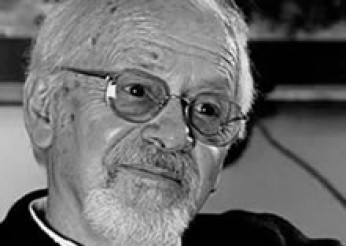Even though, just like Hitchcock, O’Toole never won a single Oscar, not counting the honorary one, he was nominated eight times. This is a fact which is mentioned in all biographies as the greatest of all sins, but nevertheless Peter O'Toole has, again like the great Hitch, become a kind of a British institution
O’Toole was born in Ireland, but grew up in Leeds torn between horse races and pubs. On one occasion he was asked for a radio station what he wanted to be when he grew up and his answer was: “A poet or an actor”. In his youth he was a political activist and took part in demonstrations against Great Britain participating in the Korean War, and later in Vietnam. He started his career on the stage of the Bristol Old Vic theatre, although the London Old Vic left a bad taste in his mouth, when the critics shot him down for his role in Macbeth. He graduated from the prestigious Royal Academy of Dramatic Arts in the same class as Albert Finney and Alan Bates, so they were able to form some kind of an actors' triumvirate that resembled a tenacious sect whose members share mutual mischievous interests. This triumvirate was only missing Richard Harris and Michael Caine to become the British actors' armada. The role of the blue-eyed desert devil in the epic biopic Lawrence of Arabia, directed by the great David Lean, transformed him an ultimate superstar. He got the role after Finney turned it down, although it was originally offered to Marlon Brando. Unlike Finney, O'Toole collaborated with cineastes of extremely opposite creative personalities, from Otto Preminger and John Huston, to Tinto Brass and Bernard Bertolucci, but he also starred in the only Hollywood film by Alejandro Jodorowski (code: The Rainbow Thief). Nevertheless, he never strayed far from the mythical theatre Royal Shakespeare Company, whose member he had been for many years and which had great influence on his film work. His acting career started when he got a small role in Nicholas Ray's The Savage Innocents starring the already famous Anthony Quinn as an Inuit. The fragile bond between his theatre and film work is evident in O'Toole's role in Beckett in which he starred opposite Richard Burton, and whose explosive portrait of Henry II became a model for Al Pacino's later mannerisms. However, attempting to analyse Henry and Beckett's final rendezvous on a beach through a homoerotic discourse seems quite ridiculous from today's perspective. Another of his roles, in The Lion in Winter again as Henry II, rests on a similar theatrical basis. This time he stars with Katharine Hepburn and this Henry II is no longer a handsome guy, but an ailing old man. We loved him in Lord Jim where he becomes neurotic in trying to elaborate Conrad's metaphysics in a conversation with James Mason about the age of the world and the price of evil. The film’s director of photography Freddie Young treated Jim's jungle in the same way that he regarded Lawrence's desert. O’Toole bade his farewell to film with a very dignified, auto ironic role of an old man in Venus by Roger Mitchell based on the screenplay by Hanif Kureishi. At such an old age, nobody could pronounce 'your cunt' in as a luscious manner as O'Toole did in that film. (Dragan Rubeša)
